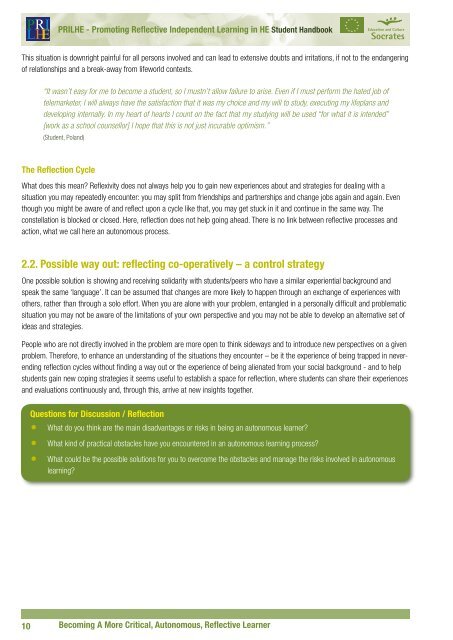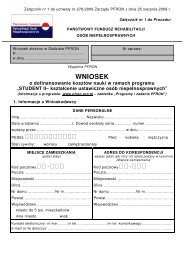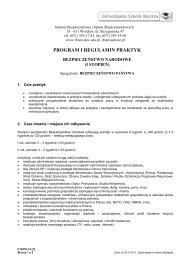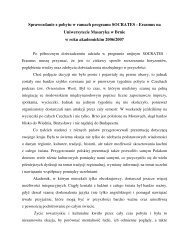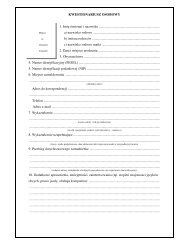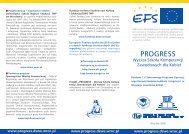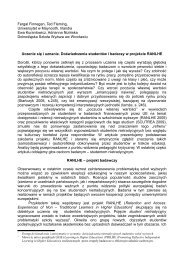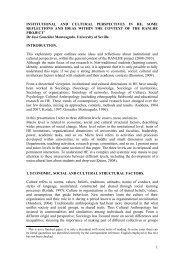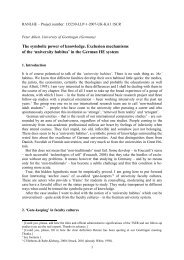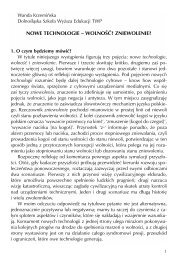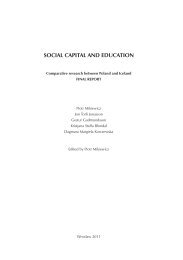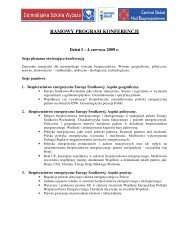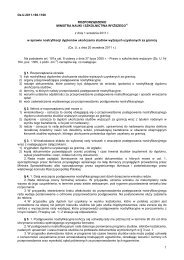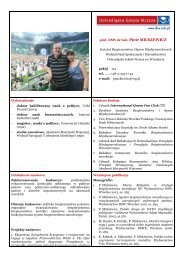Becoming A More Critical, Autonomous, Reflective Learner
Becoming A More Critical, Autonomous, Reflective Learner
Becoming A More Critical, Autonomous, Reflective Learner
You also want an ePaper? Increase the reach of your titles
YUMPU automatically turns print PDFs into web optimized ePapers that Google loves.
PRILHE - Promoting <strong>Reflective</strong> Independent Learning in HE Student HandbookThis situation is downright painful for all persons involved and can lead to extensive doubts and irritations, if not to the endangeringof relationships and a break-away from lifeworld contexts.“It wasn’t easy for me to become a student, so I mustn’t allow failure to arise. Even if I must perform the hated job oftelemarketer, I will always have the satisfaction that it was my choice and my will to study, executing my lifeplans anddeveloping internally. In my heart of hearts I count on the fact that my studying will be used “for what it is intended”[work as a school counsellor] I hope that this is not just incurable optimism.”(Student, Poland)The Reflection CycleWhat does this mean? Reflexivity does not always help you to gain new experiences about and strategies for dealing with asituation you may repeatedly encounter: you may split from friendships and partnerships and change jobs again and again. Eventhough you might be aware of and reflect upon a cycle like that, you may get stuck in it and continue in the same way. Theconstellation is blocked or closed. Here, reflection does not help going ahead. There is no link between reflective processes andaction, what we call here an autonomous process.2.2. Possible way out: reflecting co-operatively – a control strategyOne possible solution is showing and receiving solidarity with students/peers who have a similar experiential background andspeak the same ‘language’. It can be assumed that changes are more likely to happen through an exchange of experiences withothers, rather than through a solo effort. When you are alone with your problem, entangled in a personally difficult and problematicsituation you may not be aware of the limitations of your own perspective and you may not be able to develop an alternative set ofideas and strategies.People who are not directly involved in the problem are more open to think sideways and to introduce new perspectives on a givenproblem. Therefore, to enhance an understanding of the situations they encounter – be it the experience of being trapped in neverendingreflection cycles without finding a way out or the experience of being alienated from your social background - and to helpstudents gain new coping strategies it seems useful to establish a space for reflection, where students can share their experiencesand evaluations continuously and, through this, arrive at new insights together.Questions for Discussion / Reflection•••What do you think are the main disadvantages or risks in being an autonomous learner?What kind of practical obstacles have you encountered in an autonomous learning process?What could be the possible solutions for you to overcome the obstacles and manage the risks involved in autonomouslearning?10<strong>Becoming</strong> A <strong>More</strong> <strong>Critical</strong>, <strong>Autonomous</strong>, <strong>Reflective</strong> <strong>Learner</strong>


